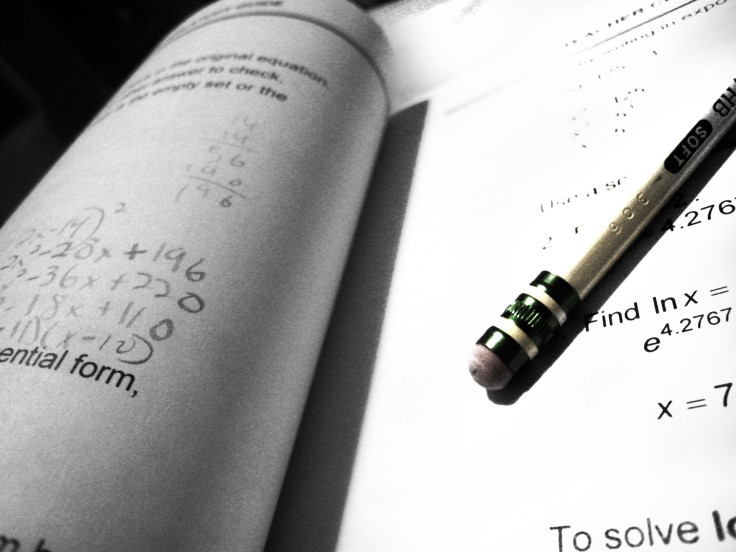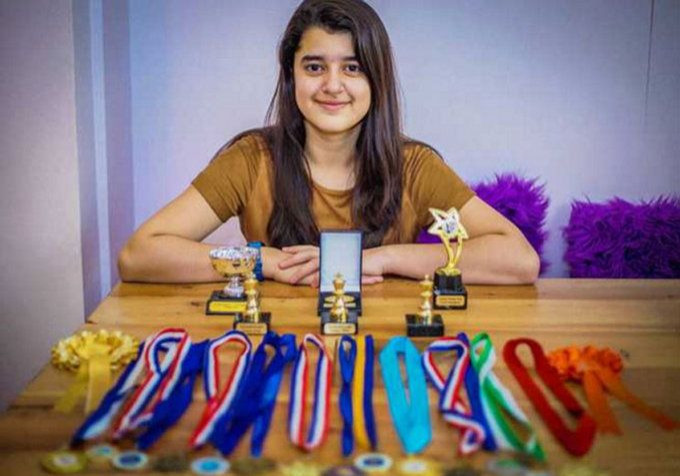11-Year-Old Beats Albert Einstein's Mensa IQ Test Score; What It Means To Have The Highest IQ Possible

When 11-year-old Kashmea Wahi stumbled across a Mensa IQ test on her iPad, she decided to take the test in hopes of proving to her parents she didn’t need to study anymore. She did more than just prove her point, she got a perfect score of 162 — placing her two points higher than Albert Einstein and Stephen Hawking.
Wahi, who’s currently a student at West London’s Notting Hill and Ealing Junior School, is also a national chess competitor and on a team that recently won third in the Oxford Maths challenge. The Mensa test’s maximum score for adults is 161 and 162 for test-takers younger than 18 years old. Wahi is thought to be the youngest person in history to have earned a perfect score, which is perhaps unsurprising considering participants have to be at least 10-and-a-half years old to take the test.

The intelligence quotient, more commonly known as IQ, was first measured and scored in 1904 by German psychologist William Stern. It was designed to assess and rank a person’s intelligence level, and has since been reconfigured and improved to reflect a person’s mental age. By 1916, the standard IQ test had traveled to the U.S., making its debut as a reliable assessment of intelligence thanks to Stanford University psychologist Lewis Ternan. The U.S. and UK became familiar with the test and eventually formed a group for elite test-takers, known to this day as Mensa.
The Mensa Society was found in 1946 by a lawyer and scientist who wanted to quantifiably collect the members of society with the highest IQs. The society includes more than 120,000 people from over 100 countries who were able to score in the top 2 percent of the population. A large majority of those who have qualified for Mensa are between the ages of 20 and 60 years old. According to Mensa International, the tests that qualify a person for Mensa set out to identify a person’s IQ in order to properly assess how their intelligence level lines up with previous test takers.
Today, standardized IQ tests are revered as a way of categorizing society into hierarchies of intelligence levels. However, in more recent years the validity of the test has been questioned. A 2012 study, published in the journal Neuron, found there is no one exact test that could measure a person’s entire IQ and reveal their general intelligence level.
For the study, researchers recruited more than 100,000 participants who completed 12 cognitive tests that examined memory, reasoning, attention, and planning abilities. After providing information about their background and lifestyle, researchers scanned participants’ brains using a functional magnetic resonance imaging (fMRI) machine. They found various brain circuits were involved when completing certain tasks, while others were shut off. This suggested there is no single test or component that could definitively measure a person’s mental and cognitive abilities.
"When we looked at the data, the bottom line is the whole concept of IQ — or of you having a higher IQ than me — is a myth," the study’s lead researcher Dr. Adrian Owen, chair of Western University’s Brain and Mind Institute, told the Toronto Star. "There is no such thing as a single measure of IQ or a measure of general intelligence."
While skepticism remains, Wahi’s score is still an impressive feat. Mensa tests are capable of evaluating intelligence, but the jury is still out on whether they can acutely measure every type of intelligence.



























